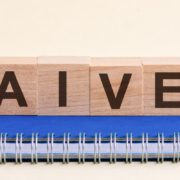Understanding the Pennsylvania Waiver Program for Home Care Services
For many seniors and individuals with disabilities, staying in their homes while receiving care is a top priority. The Pennsylvania Waiver Program helps make that possible by covering home and community-based services (HCBS) for those who qualify. Instead of moving into a nursing home, eligible individuals can receive assistance with daily activities right in their own homes.
What Is the Pennsylvania Waiver Program?
The Pennsylvania Waiver Program is designed to provide Medicaid-funded services to seniors and adults with physical disabilities who need long-term care. The program offers an alternative to institutional care, allowing participants to remain in familiar surroundings while receiving support. It covers a wide range of services, including personal care assistance, home modifications, medical equipment, and respite care.
Several waivers exist under this program, each tailored to different needs. The most commonly used for home care services include:
- Aging Waiver – For individuals 60 and older who require nursing home level of care but wish to remain at home.
- Community HealthChoices (CHC) – A managed care program that provides long-term services to Medicaid recipients, including home care.
- Independence Waiver – For adults under 60 with physical disabilities who need assistance to live independently.
Who Qualifies for the Pennsylvania Waiver Program?
To qualify, individuals must meet both financial and medical criteria. The Pennsylvania Department of Human Services assesses applicants to determine eligibility based on:
- Medical need – A doctor must confirm that the individual requires a level of care typically provided in a nursing home.
- Income and assets – Medicaid eligibility guidelines apply, though certain assets, such as a primary residence, may be exempt.
Those approved for the Pennsylvania Waiver Program receive a personalized care plan based on their needs. Services are provided by agencies like River Oaks Home Care, which is enrolled in the program. This ensures recipients receive professional and regulated home care support.
How to Apply for Home Care Services Through the Pennsylvania Waiver Program
The application process can feel overwhelming, but following these steps can make it easier. You do not have to do this alone. The caring team at River Oaks Home Care can help you through this complex process.
- Complete the Assessment – A state-appointed assessor evaluates medical and financial eligibility.
- Choose a Managed Care Organization (MCO) – If applying under Community HealthChoices, applicants must select an MCO to coordinate their care.
- Select a Home Care Provider – Once approved, individuals can choose a home care agency, like River Oaks Home Care, to receive services.
How River Oaks Home Care Can Help
The Pennsylvania Waiver Program can be complex, but River Oaks Home Care is here to guide you. Our team helps families understand the eligibility process, complete applications, and connect with the right services. Once approved, we provide compassionate in-home care tailored to each client’s needs.
If you or a loved one are considering home care in the Philadelphia, Bucks, and Montgomery County area through the Pennsylvania Waiver Program, contact River Oaks Home Care. We’re ready to help you every step of the way.







